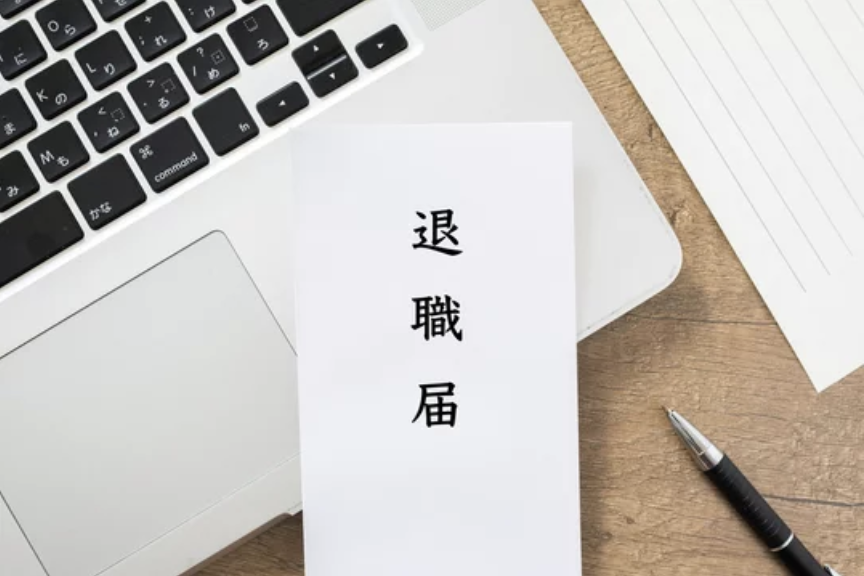How to Avoid Common Pitfalls When Resigning
- お役立ち情報
How to Avoid Common Pitfalls When Resigning
Understanding Resignation Etiquette in Japan
Cultural Context
Resigning from a company in Japan is not merely an administrative step—it reflects a deep-seated cultural value of respect, loyalty, and harmony within the workplace.
This article, originally written for Japanese professionals, outlines the appropriate way to leave a position in accordance with local customs and expectations.
For global employers and HR professionals, it offers valuable insight into why Japanese employees often approach resignation more carefully and thoughtfully than their Western counterparts.
Understanding these nuances can help international organizations navigate transitions with empathy and maintain strong, trust-based relationships with their Japanese staff.
At RYZE, we have supported many professionals through their career transitions—and we’ve also seen how often people encounter difficulties at the resignation stage.
For example, some candidates find their relationship with their employer deteriorates after a contentious resignation negotiation, while others give up on a new opportunity because they couldn’t handle strong counteroffers or emotional pressure from their managers.
In fact, statistics show that among those who once informed their company of their intention to resign but later decided to stay, nearly 90% end up changing jobs within a year.
So how can you avoid such resignation troubles?
Among all stages of a career move, resignation is often the most psychologically stressful. However, with the right preparation and understanding, there is no need to be anxious.
What This Article Covers
- STEP 1: Preparing before submitting your resignation letter
- STEP 2: Why companies try to retain employees who resign
- STEP 3: How to handle counteroffers and persuasion to stay
- STEP 4: The risks of not following through with your resignation
- STEP 5: As a last resort: What to do if your resignation is not accepted

STEP1
Preparation Before Submitting Your Resignation Letter

1. Set your resignation date with adequate notice
2. Submit a formal resignation letter and keep a record
3. Choose Friday as the best day to submit it
4. Communicate your decision firmly, leaving no room for negotiation
5. Explain your resignation with positive, forward-looking reasons
6. Quietly start preparing for your departure
7. Don’t feel guilty about leaving your company
1. Set Your Resignation Date with Adequate Notice
Legally in Japan, employees can resign two weeks after submitting a resignation notice.
However, in practice, two weeks is rarely enough for proper handover. Most professionals complete the transition—including knowledge transfer and paid leave use—within one to two months.
Many companies specify a one- or two-month notice period in their employment regulations.
If you wish to leave on good terms, check your company’s rules in advance.
If you already have a new job offer, make sure the resignation date aligns with your new employer’s start date and your current company’s timeline.
2. Submit a Resignation Letter and Keep a Record
You might wonder: should you submit a resignation request (taishoku-negai) or a resignation letter (taishoku-todoke)?
- A resignation request asks the employer for approval and can technically be withdrawn until it’s accepted.
- A resignation letter, however, is a formal notice from the employee. Once submitted, it cannot be retracted in principle.
Verbal communication alone leaves no record, so always submit your resignation in writing or by email.
Some individuals who are headhunted make the mistake of submitting their resignation before signing an employment contract with the new company. This is risky—since not all headhunting interviews result in an official offer, you should finalize the new contract before resigning.
Many employees also mistakenly believe they cannot leave without company approval. In reality, resignation is a legal right—you do not need your employer’s consent. As long as you submit a dated resignation letter specifying your final workday, your departure is legally valid.
Under Article 627 of Japan’s Civil Code, employees without a fixed-term contract (i.e., regular employees) may resign at any time with at least two weeks’ notice, regardless of employer approval.
In short, the right to resign lies entirely with the employee, and your employment automatically ends two weeks after submitting your resignation notice—even if the company refuses to “accept” it.
3. Why Friday Is the Best Day to Submit Your Resignation
Many people submit resignation letters on a Monday—but Friday morning or early afternoon is often the better choice.
If you resign on a Monday, your boss might schedule multiple follow-up meetings throughout the week, prolonging discussions and adding unnecessary stress. This is often a deliberate tactic to wear you down and make you reconsider.
By resigning later in the week—especially on Friday—you allow the weekend to give both sides emotional distance.
Your manager may process the news more calmly after a short break.
Friday also tends to be a more relaxed day overall, which helps ease tension.
For timing, choose morning or just after lunch, when everyone still has energy, rather than late in the day.
In contrast, Monday or Tuesday evenings are the least ideal times to resign.
4. Show Firm Intent—Leave No Room for Negotiation
If you “consult” your manager about resigning or submit a resignation request instead of a letter, the company may interpret it as an invitation to negotiate.
Once they ask “Why do you want to leave?”, you may inadvertently express frustrations that can later be used to persuade you to stay—through promises of promotion, pay raises, or improved conditions.
To avoid this, make your intent clear and decisive. When submitting your resignation letter, keep the conversation short and polite. For example:
“I’ve decided to move on to a new opportunity (or, if you don’t yet have one, simply say ‘I’ve decided to resign’). My final working day will be [date]. I’m sincerely grateful for the experience and guidance I’ve received here. I’ll ensure a smooth handover and take full responsibility for completing all ongoing work before my departure.”
This kind of statement communicates appreciation while leaving no room for negotiation.
5. Use Positive, Forward-Looking Reasons
Condition 1: Your reason should involve something that cannot be achieved in your current company.
Frame your move as a desire for new challenges or growth opportunities—whether leveraging your existing experience or pursuing something entirely new.
If your stated reason is something that could be addressed internally (e.g., salary), it may become a tool for retention.
Condition 2: Keep your reason positive.
Avoid citing dissatisfaction or frustration. Negative reasons can damage relationships and even lead to hostility before you leave.
If you complain about the company, your employer may try to fix those issues to make you stay—offering raises or changes that might never actually materialize. Many “retention promises” end up being verbal and unfulfilled.
If you truly have no forward-looking reason, citing personal or family circumstances—such as caregiving or health—can also be effective and socially acceptable in Japan.
6. Quietly Begin Preparing for Departure
Once you’ve decided to resign, start practical preparations discreetly—organize your work, document processes, and bring personal belongings home.
These small actions help you mentally transition and solidify your commitment to move forward.
If you announce your resignation while still unsure, your manager may sense hesitation and attempt to persuade you to stay.
When the time comes, submit your resignation with confidence and composure.
7. Don’t Feel Guilty About Leaving
Resignation is often the most emotionally challenging stage of a career change, and it’s normal to feel guilty about leaving your company.
But remember—this guilt stems from your sense of responsibility, loyalty, and conscientiousness. Those are strengths, not flaws.
However, don’t let guilt limit your choices.
Changing environments and taking on new challenges are some of the best ways to grow personally and professionally.
No company stops moving forward because one employee leaves.
Even managers or colleagues who try to keep you may themselves move on one day. Ultimately, everyone prioritizes their own path—and you should, too.
Leaving is not betrayal; it’s a decision about what’s best for your own life.
It’s natural to value your workplace relationships, and some may continue as friendships after you leave—but most will simply become “former colleagues.”
Recognize that guilt comes from within—you’re not doing anything wrong.
Finally, consider this: if someone cannot celebrate your next chapter, were they truly a friend?
A genuine colleague will say, “Congratulations! I know you’ll do great in your next role.”
STEP2
Why Companies Try to Retain Employees Who Resign

If your company accepts your resignation graciously, consider yourself fortunate. In many cases, you should expect some form of retention attempt—that’s normal.
Why do employers work so hard to keep someone who has decided to leave? Beyond the obvious impact of having one less person on the team, there are additional reasons:
1) They want to avoid the burden of finding a replacement
For roles that require successors, no one knows how long a replacement search will take—or whether the new hire will perform at your level after the handover. If mid-career hiring becomes necessary, the company incurs significant costs in advertising, interviews, handover, and training. To minimize these time, budget, and people costs, companies often try to retain employees rather than replace them.
2) A manager’s evaluation can suffer when a direct report quits
From a corporate perspective, retaining employees long-term is more cost-effective. Managers who “lose” people frequently are often rated poorly. Your manager therefore has an incentive to keep you by any means—retaining you may be more advantageous for them than seeing you off on good terms.
STEP3
Retention Tactics—and How to Respond

So how do companies actually try to keep people from leaving? Below are common tactics and practical responses.
1) Counteroffers that tempt you to stay
2) Psychological pressure: guilt and fear appeals
3) Pushing to postpone your last day
4) “We haven’t accepted your resignation”
5) “You can’t move to a competitor” (threats)
6) Becoming a target of colleague envy
1) Counteroffers that tempt you to stay
After you announce your resignation, management may present attractive terms to persuade you to remain—e.g., a promotion or raise to address compensation concerns, or a team change or scope change to address role/relationship issues.
However, if these improvements appear only after you threaten to leave, it suggests your value wasn’t properly recognized before. In practice, many counteroffer promises quietly fade once you decide to stay. We’ll explain more later—but this happens frequently.
Response: Assume counteroffers are unlikely to materialize in full. Thank them and decline.
2) Psychological pressure: guilt and fear appeals
- Appealing to conscience: “We’ll be in trouble without you.” “The work won’t function without you.” “You’re future leadership material.”
- Appealing to guilt: “Are you betraying your teammates—the company—the people who helped you?” “We have no successor yet; please don’t go.”
- Stoking fear: “We’ve heard bad things about the new employer.” “It won’t work out.” “Waiting another year wouldn’t hurt.”
These statements are leverage—not objective advice. Will your manager take responsibility for your life? Only you can. Choose what’s best for you.
Response: Whatever is said, recognize it as self-protection on their part. Stay calm and move on.
3) Pushing to postpone your last day
You may hear: “Stay until this project ends,” “Wait until we hire a successor,” “You can’t leave until the handover is complete,” or “We need you for at least six more months.”
Many companies ask for about a month’s notice and some specify longer in internal rules. While this sounds reasonable, under Japanese law regular (non–fixed-term) employees may end their employment two weeks after submitting a resignation notice; company rules cannot override the law.
Response: Prepare your handover in advance. Then you can say, “With X days I can complete a proper handover,” leaving no basis to extend your date.
4) “We haven’t accepted your resignation”
In large organizations, approvals may be needed from senior management or HR. Sometimes processes legitimately take time; sometimes a manager simply delays reporting or allows the request to stall without clarity on who is responsible.
Response: Track who must process what by when. Keep written records (names, deadlines, status). You manage the progress so it cannot be indefinitely “on hold.”
5) “You can’t move to a competitor” (threats)
This is a common retention line. As a rule, moving to a competitor is not illegal in itself. Threats of legal action or harassment often aim to prevent both the loss of your contribution and the “double hit” of you strengthening a competitor—and to deter others from following.
That said, lawsuits do occur when a former employer alleges theft of confidential information. The move itself isn’t illegal, but mishandling confidential data can be.
Response: Do not disclose your next employer. If asked, a safe line is: “My future employer has asked me to keep this confidential.”
6) Becoming a target of colleague envy
It’s also wise not to tell colleagues where you’re going before you leave. Career moves often trigger gossip or envy, which can undermine your resolve. Seemingly “helpful” comments (“I’ve heard bad things about that company/industry…”) may heighten anxiety.
Information also travels—your manager might hear and intensify pressure or create friction.
Response: Do not share your destination with anyone at work.
STEP4
The Risks of Deciding Not to Leave

Many people assume that if they withdraw their resignation, they can simply continue as before. In reality, nearly 90% of those who once tried to resign end up changing jobs within a year. Why? Because the post-retention reality often diverges from expectations:
1. Promised conditions (raise, transfer, etc.) never materialize
2. If they do, increased expectations and KPIs create unsustainable pressure
3. You’re perceived as “someone who might leave anytime,” limiting promotion prospects
4. The very manager who retained you later quits
5. Organizational changes—M&A, strategy shifts, leadership changes—alter your environment
6. The company whose offer you declined is unlikely to consider you again
Details:
- Unfulfilled promises: Many counteroffers are verbal and subject to internal constraints (equity across teams, HR approvals), so they quietly lapse.
- Higher pressure post-raise/promotion: With higher pay/title come higher targets and scrutiny; many people later leave as a result.
- Trust erosion: After signaling intent to resign, some managers view you as a flight risk and avoid promoting you. Using an outside offer to negotiate can also damage trust—much like telling a partner you’ve found a “better option” unless they meet conditions.
- Manager departures and company change: You can’t control whether your manager stays, or whether the company is acquired or restructured.
- Burned bridges: If you declined an offer once, the same company is unlikely to extend another.
Bottom line: withdrawing a resignation can carry substantial risk. While some cases work out, be decisive when you inform your employer of your intent to leave.
STEP5
If Your Resignation Is “Not Accepted”: Last-Resort Measures

If, despite all the above, the company still refuses to process your resignation, consider these final measures:
1. Send your resignation by certified content-certified mail
Under Article 627(1) of Japan’s Civil Code, if no fixed term is specified, either party may terminate the employment at any time; employment ends two weeks after the notice. (Note: fixed-term contracts are different.)
If your notice is being “ignored,” send a resignation letter to the company president via content-certified mail with delivery confirmation. This provides an official record of receipt and prevents disputes over whether the company “accepted” it.
2. Use a third-party resignation agency
If you anticipate significant friction—or simply prefer to delegate—consider a resignation agency. General services typically cost around JPY 10,000–50,000. If legal issues are expected, attorney-run services (roughly JPY 50,000–200,000) can handle matters in compliance with the law.
3. Resubmit your resignation and document everything
Submit your notice again to your manager, state that if it’s refused you will contact the Labor Standards Inspection Office, and record the conversation. In practice, this usually resolves the issue.
These measures should be considered last-resort options when all other attempts to resign have failed.
If you resign unilaterally, it may be difficult to maintain an amicable relationship with your company. Please be aware that it could also affect your relationship with your current manager and colleagues, so proceed with care when taking your final steps toward resignation.
This has been a long explanation on how to avoid resignation-related troubles and how to handle retention attempts.
We hope the information in this article has been helpful to you.
Thank you very much for reading to the end.
GOOD LUCK!
Request a Free Consultation
Discuss your hiring goals with our specialists.



Want to Learn More?
Download our detailed service guide.






